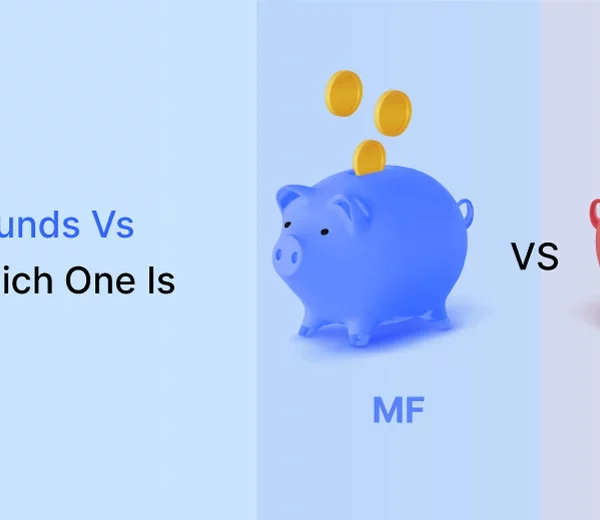Investing in bonds can be an excellent channel to earn a steady income and achieve portfolio diversification. However, it’s essential to recognize the tax implications of our bond investments.
In this blog post, we’ll take a closer look at how much tax we can expect to pay on our bond investments and how to minimize our tax liability.
We’ll also discuss the different types of bonds and how they’re taxed, so we can make informed investment decisions. Whether we are seasoned investors or just starting out, this guide will help us navigate the complex world of bond taxation.
Tax Applicable on Bonds
As interest rates rise, investors are considering investing in fixed-income products such as bonds, deposits, and debt funds to park their money. However, before making any investment decisions, we need to be mindful of the interest rate cycle and maturity of the securities.
We also need to consider how these debt instruments are taxed, as each one is taxed differently, which can affect our post-tax return from product to product.
We should ensure that we fully understand the tax implications of our investment choices to make informed decisions and maximize returns.
When it comes to the taxation of bonds, there are two key elements to consider: the interest earned and any capital gain at the time of sale. If the bonds are held until maturity, there will be no capital gain as the face value of the bond will be received.
However, the interest earned on the bonds will be subject to taxation at the individual’s tax rate. It is important to keep in mind these factors to understand the full tax implications of bond investments.
Income Tax on Regular Bonds
Taxable bonds, as the name implies, are subject to taxes on the earnings generated from them. These earnings can be either the interest earned or capital gains.
Capital gains refer to the profit made by an investor at the time of maturity, which is calculated as the net difference between the sale price and purchase price of the bonds.
The Interest we earn on taxable bonds is added to our gross total income and taxed according to our tax bracket.
For instance, if we invest Rs. 10,00,000 in a taxable bond at a 10% annual interest rate, our interest income would be Rs. 1,00,000, which would be added to your gross total income (GTI) and taxed accordingly.
Capital gains on taxable bonds can fall into two categories: long-term capital gains (LTCG) and short-term capital gains (STCG). For listed bonds, if the investment period is over 12 months, the returns are considered LTCG and will attract income tax at 10% with no indexation.
If the holding period is less than 12 months, the returns are considered STCG and taxed as per our applicable tax bracket.
For unlisted bonds, if we hold the security for over 36 months, the gains fall in the LTCG category and will attract a 20% tax rate with no indexation.
If our holding period is below 36 months, the gains are considered STCG and we will be taxed as per the applicable tax bracket.
Tax Deduction at Source on Bonds
In India, bond investments are subject to tax deduction at source (TDS) if the interest earned on the bonds exceeds a certain threshold.
The current TDS threshold for interest earned on bonds is Rs. 40,000 per financial year. If the interest earned on a bond investment is less than Rs. 40,000, no TDS is applicable.
However, if the interest earned exceeds Rs. 40,000, TDS at the rate of 10% will be deducted by the payer (issuer or bank) and credited to the government.
Tax-Free Bonds
In India, government and public sector entities issue bonds as a means of raising funds for various projects of national importance, such as social welfare initiatives and infrastructure.
One type of bond that is offered is tax-free bonds, which are used to fund the said projects such as railways, highways, ports, urban and rural development, etc.
These bonds do not impose any tax on interest earned by the investors. However, when these bonds are sold or reach maturity, the returns earned are subject to long-term capital gains or short-term capital gains tax, depending on the holding period.
Tax Saving Bonds
These bonds are available to individual taxpayers and Hindu Undivided Families (HUFs) for the purpose of tax savings under Section 80C of the Income Tax Act.
The bonds are issued by the government or public sector companies and can be purchased directly from the issuing entity or through a stock exchange.
Tax-saving bonds typically have a face value of Rs. 1000 and offer a fixed coupon rate of interest, paid out semi-annually.
When traded on a stock exchange, it is important to monitor the bond prices, which are inversely related to the interest rates – when interest rates decrease, bond prices increase, and vice versa.
Tax-saving bonds are long-term investment options with maturity periods ranging from 10 to 20 years. They can be redeemed at maturity or traded in the secondary market through a stock exchange. If sold within a year of purchase, the profit earned is subject to regular income tax.
However, if sold after one year, a long-term capital gains tax is applicable, capped at 10% without indexation benefit or 20% with indexation benefit, as governed by Section 112 of the Income Tax Act, 1961.
Zero-Coupon Bonds
A coupon is an interest that investors receive when they invest in a bond. Zero coupon bonds do not offer any interest during the investment period but are issued at a lower price compared to the face value. Upon maturity, we receive the entire face value of the bond.
For example, if Mrs. Singh invested in a zero-coupon bond with a face value of Rs. 25,000, and the issue price was Rs. 10,000 (representing a discount of Rs. 15,000), she would receive the full Rs. 25,000 at maturity. There are no regular interest payments made for zero coupon bonds, and as a result, there is no tax on interest earned.
However, if the bond is sold, capital gains from the sale may be subject to long-term capital gains (LTCG) or short-term capital gains (STCG) tax, as governed by the Income Tax Act, of 1961.
Only NABARD, REC, and certain government entities are authorized to issue zero coupon bonds.
Conclusion
The amount of tax payable on investments in bonds in India depends on various factors such as the type of bond, the tenure of investment, and the nature of the gains. In bonds that offer interest, the interest earned is taxed as per our income tax bracket.
It is important for us to understand the tax implications of our bond investments and to factor these into our investment decisions.
We should also be aware of changes in tax laws and regulations to ensure that our investments remain tax efficient. By considering these factors, we can make informed decisions and maximize our returns on bond investments.
If you are looking for a financial partner to dispense the best advice, Koshex is the right option for you. It allows you to select the best investment avenues based on your risk profile and future goals. Click here to sign up with Koshex now!









Leave a Comment